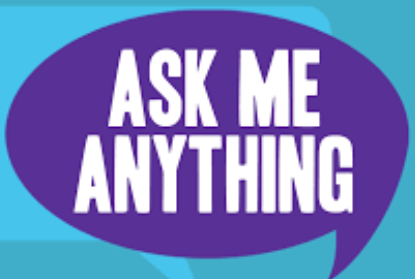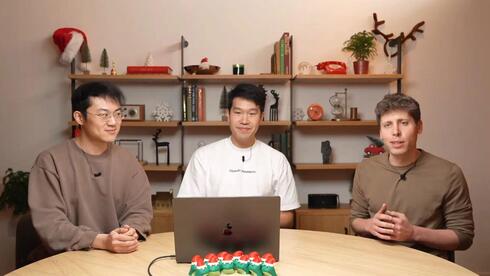TIL I am a deer. Thank you science!
- 3 Posts
- 124 Comments

 8·1 day ago
8·1 day agoThis is mentioned briefly in both the articles, but wanted to highlight that the Scopes trials were initially initiated as a media stunt by the local coal company to bring money and attention to their town. They selected Scopes as the defendant, William Jennings Bryan as lead prosecutor, and, after H.G. Wells declined, Darrow as defense.
Civic groups testing the law to bring them to trial isn’t an unusual practice, but it being led by local business to profit the town is.
There were plenty of morons in the 80s and 90s. Half the population suffered from severe lead poisoning. The other half were hopped up on neo liberal propaganda.
That checks out.
“When you don’t have any data you have to use reason.” - Richard Feynman, some guy who watch science shows a lot
Technically incorrect. There are no feathers.
But lava rock grinds are not part of the industrial waste stream repurposed for profit. This is innovation!
Microbeads are manufactured solid plastic particles of less than one millimeter in their largest dimension.[1] They are most frequently made of polyethylene but can be of other petrochemical plastics such as polypropylene and polystyrene. They are used in exfoliating personal care products, toothpastes, and in biomedical and health-science research.[2]

 34·5 days ago
34·5 days agoMaybe it’s because it’s because I just finished reading this section in Range, but I think it’s more than the engineers knew.
When sociologist Diane Vaughan interviewed NASA and Thiokol engineers who had worked on the rocket boosters, she found that NASA’s own famous can-do culture manifested as a belief that everything would be fine because “we followed every procedure”; because “the [flight readiness review] process is aggressive and adversarial”; because “we went by the book.” NASA’s tools were its familiar procedures. The rules had always worked before. But with Challenger they were outside their usual bounds, where “can do” should have been swapped for what Weick calls a “make do” culture. They needed to improvise rather than throw out information that did not fit the established rubric.
Roger Boisjoly’s unquantifiable argument that the cold weather was “away from goodness” was considered an emotional argument in NASA culture. It was based on interpretation of a photograph. It did not conform to the usual quantitative standards, so it was deemed inadmissible evidence and disregarded. The can-do attitude among the rocket-booster group, Vaughan observed, “was grounded in conformity.” After the tragedy, it emerged that other engineers on the teleconference agreed with Boisjoly, but knew they could not muster quantitative arguments, so they remained silent. Their silence was taken as consent. As one engineer who was on the Challenger conference call later said, “If I feel like I don’t have data to back me up, the boss’s opinion is better than mine.”
I think most of us believe decisions should be data driven, but in some edge cases gut instinct is valuable.
It is easy to say in retrospect. A group of managers accustomed to dispositive technical information did not have any; engineers felt like they should not speak up without it. Decades later, an astronaut who flew on the space shuttle, both before and after Challenger, and then became NASA’s chief of safety and mission assurance, recounted what the “In God We Trust, All Others Bring Data” plaque had meant to him: “Between the lines it suggested that, ‘We’re not interested in your opinion on things. If you have data, we’ll listen, but your opinion is not requested here.’”

 12·5 days ago
12·5 days agoThey didn’t get blown up. The Challenger did.

 4·5 days ago
4·5 days agoI imagine there’s a basic set of skills every mason has to have to be called a competent mason. But more advanced skills aren’t necessary. What skills did you develop that you really worked hard on? What some skill that really impresses you that you don’t have in masonry?
What a fucking prick. They didn’t even say they were sorry to hear you lost your job. They just want you dead.

 7·6 days ago
7·6 days agoPets.com is held up as the example of these late 90s tech bubble. No one could ever believe your have pet supplies sold online when you have a pet store a short drive away.
The problem with the company’s business plan was that pet supplies of all types—food, toys, clothing, and so on—could be found easily at the nearest grocery or pet store. Given the choice between ordering online and waiting for delivery or walking into the nearest store to buy the product and take it home immediately, the majority of people preferred the latter.
But now Chewy is a very successful company with a loyal customer base and even Amazon covers much of what was sold at Pets.com.
People will say things like it was a good idea that was too early. But at the time it was ridiculed for the naivete and exuberance of people in the tech world.
That’s how it was designed. That’s how everyone uses it.
There was a clickbait NY Post article that I’d never link to, this article (archive) is more even handed.
How’d they snag you? Was it coerced or a quick grab?
How’d they treat you once they got you?
Unschooling and by extension, the democratically run Free Schools come to mind.
Gonna play a game of comment roulette. How far do I have to scroll before I see someone say something like, “That can’t be in their museum because they can’t be trusted with it”.
Spinning the chamber now.
Edit: turns out I wasn’t prepared for what I saw. Now I sad.
Sadly it’s been a week. I’ve read this several times as closely as I could and tried to understand where my apprehension lies. I spent some time with the wiki link to counterfactuals and wanted to really dedicate more time doing so, but wasn’t able to dedicate the time to it.
So, again, to restart the conversation, I wonder if, I have two separate confusions. The first, if consciousness is a property that is weakly emergent in brains, what is a brain?
I think I have a hard time buying that consciousness is a property of a brain and not mind. And I get that you are not trying to prove that it does. I’m far more interested in why, in the face of minimal support, we would align ourselves with weak emergence over strong emergence.
I have a lingering second problem. What is a model? In that wiki link, it has a three layer model: association, intervention, and counterfactuals. I would be hard pressed to consider the first two layers as sufficient for bing considered a model. But I think the three layer model doesn’t, as far as I’ve read, address intention, causal connection, or first order simulation. I think I’m hard pressed to see a collection of cells, neuron or otherwise, doing more than creating a response to a condition.
F#? What? We can’t curse on the internet? Self censorship at dictator levels here. /s







The solution to climate change is to blow up the sun. Obvious. … Edit: /s